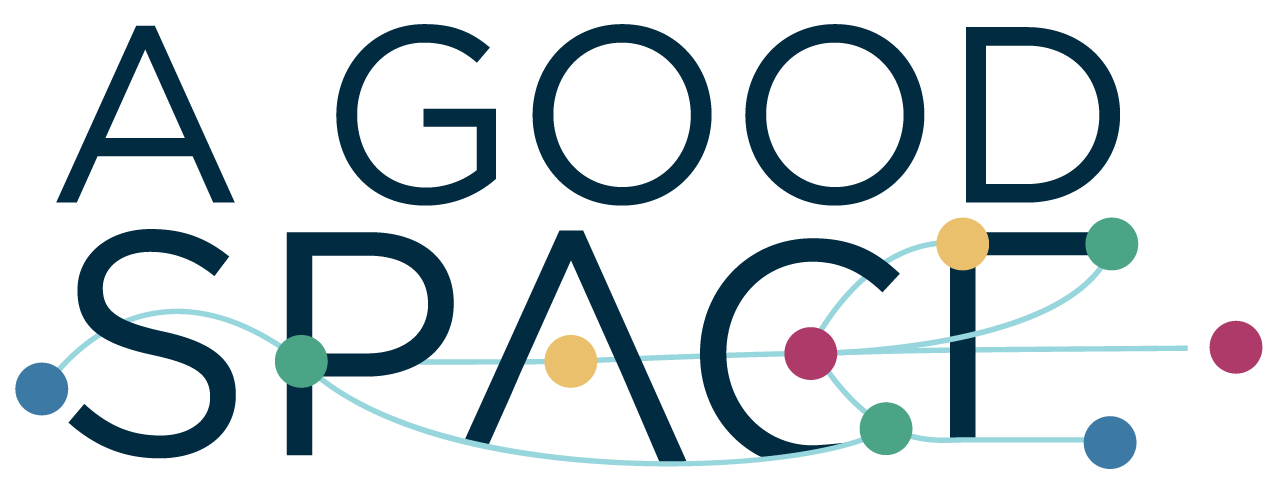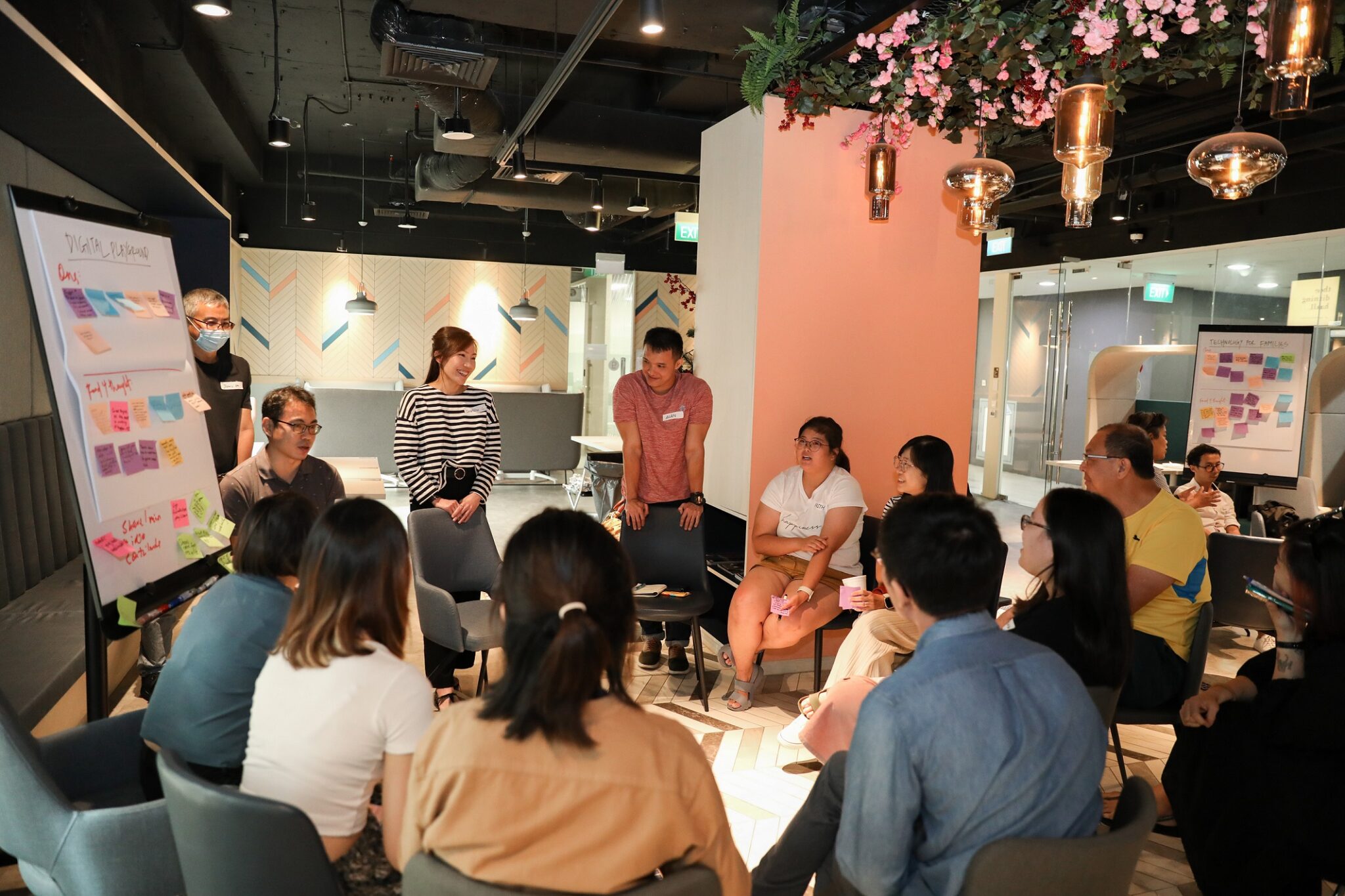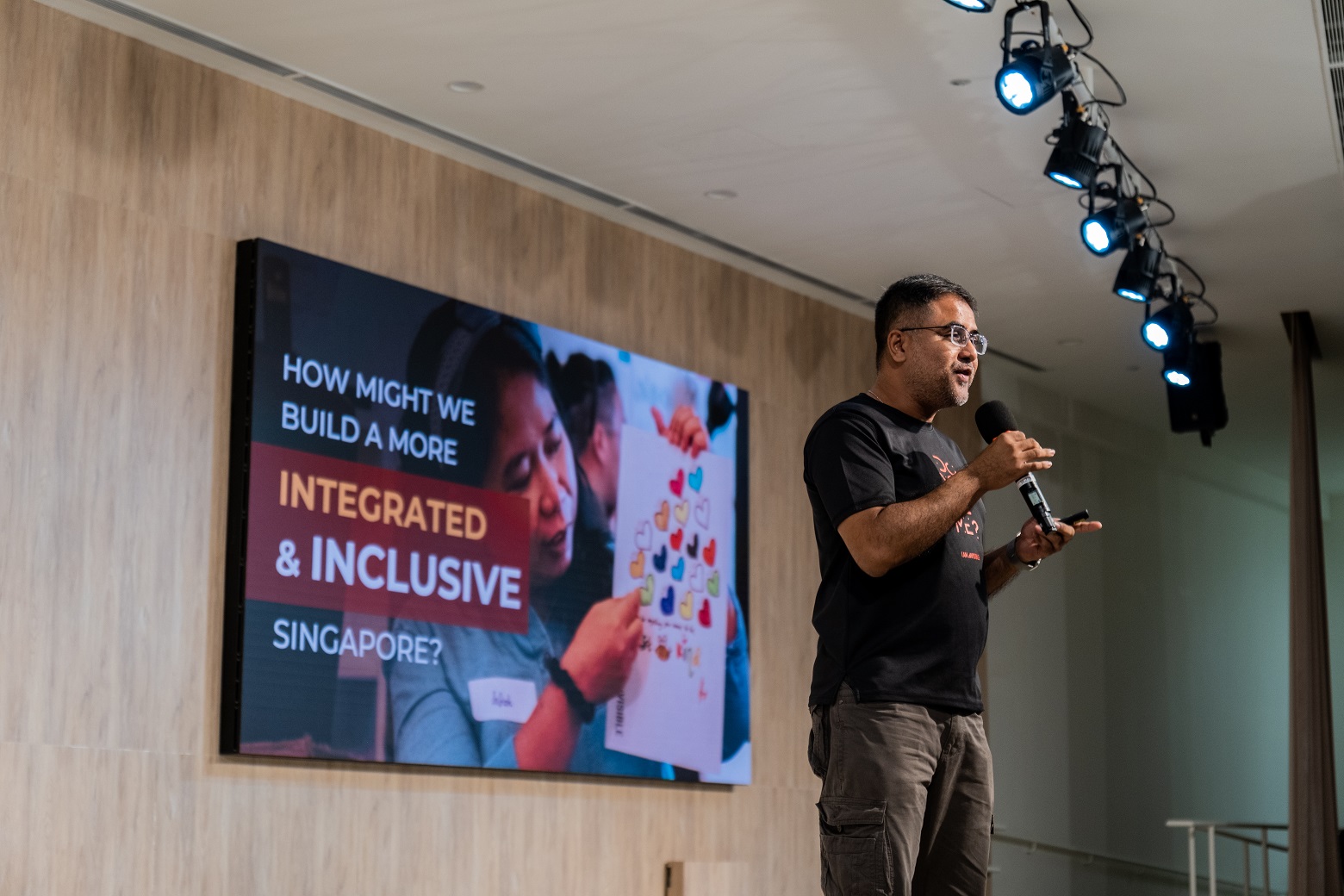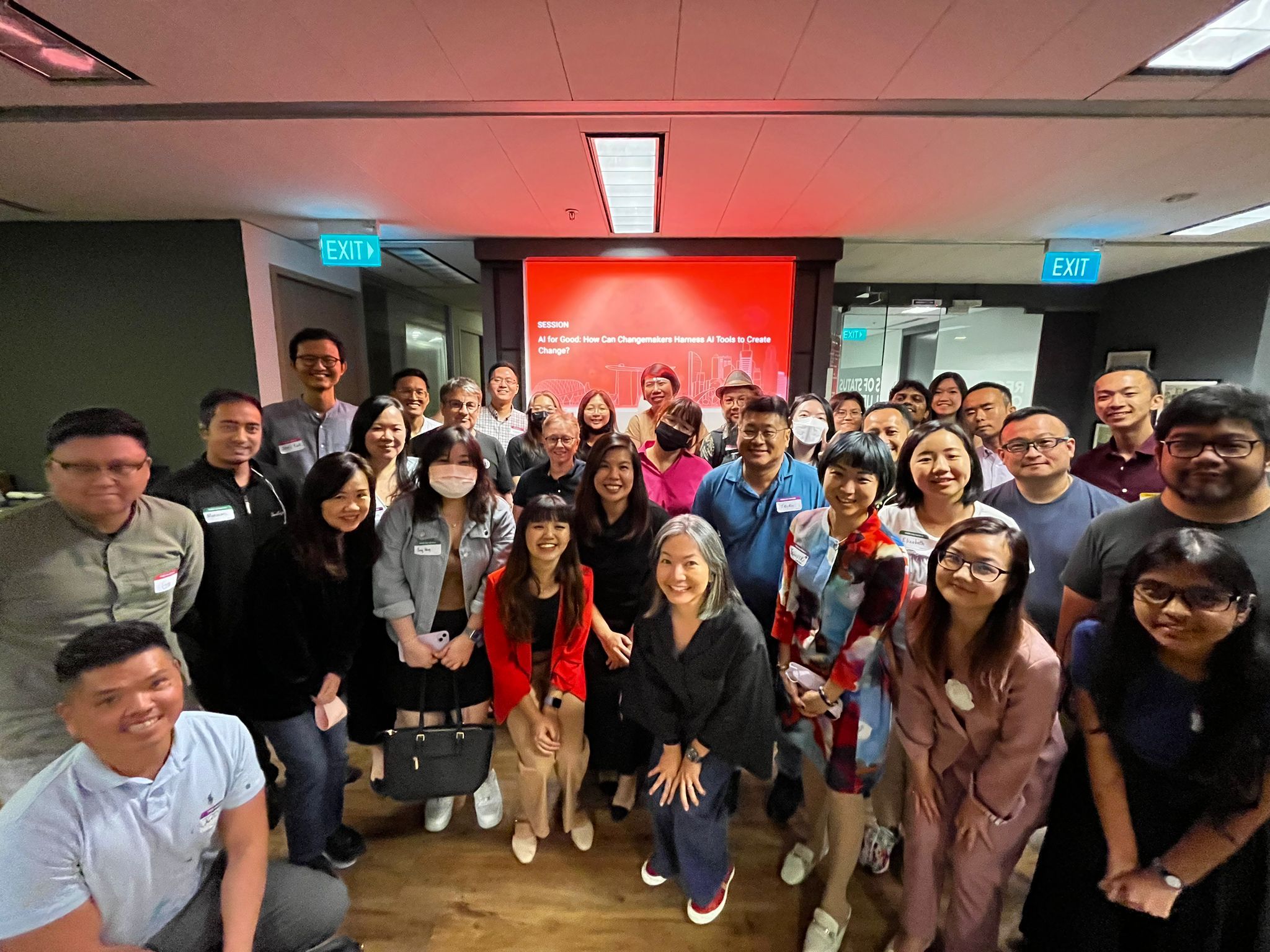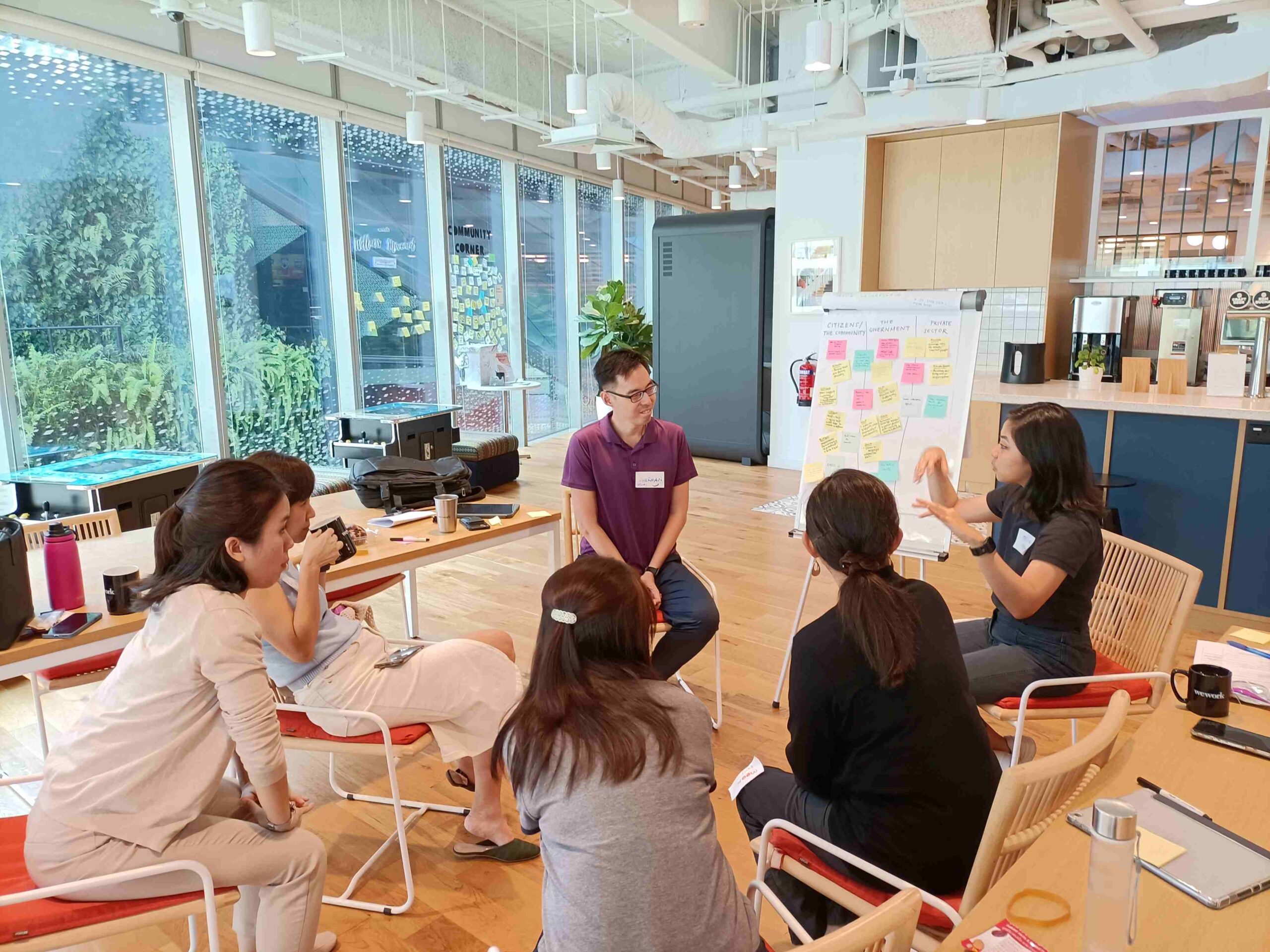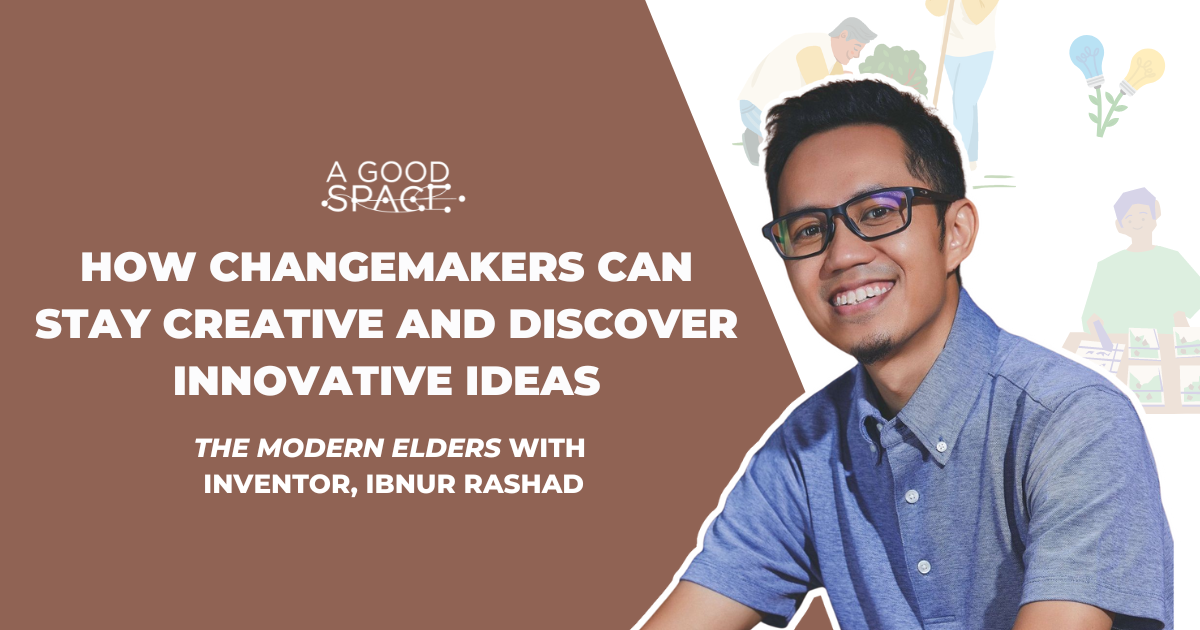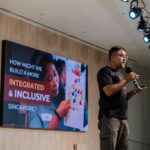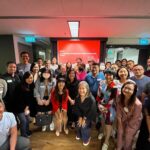The pandemic highlighted widening inequalities between low-income communities and the rest of society, especially the growing digital divide. Since then, there have been various efforts led by government agencies such as IMDA, ground-up groups like Project DIP, NGOs like Engineering Good and companies like Cognizant to improve digital inclusion in Singapore.
After being part of an effort to disburse $1.12 million to low-income families struggling financially during the pandemic, we witnessed this growing digital divide first hand and the complexity of the challenges faced by these families.
Beyond providing short-term financial aid, we wondered: “what more can we do to create longer-term change?”
Over 3 workshops in the last 6 months, we gathered people from different sectors – NGOs, government agencies, social service agencies, businesses and low-income persons themselves to identify key issues surrounding digital inclusion in Singapore.
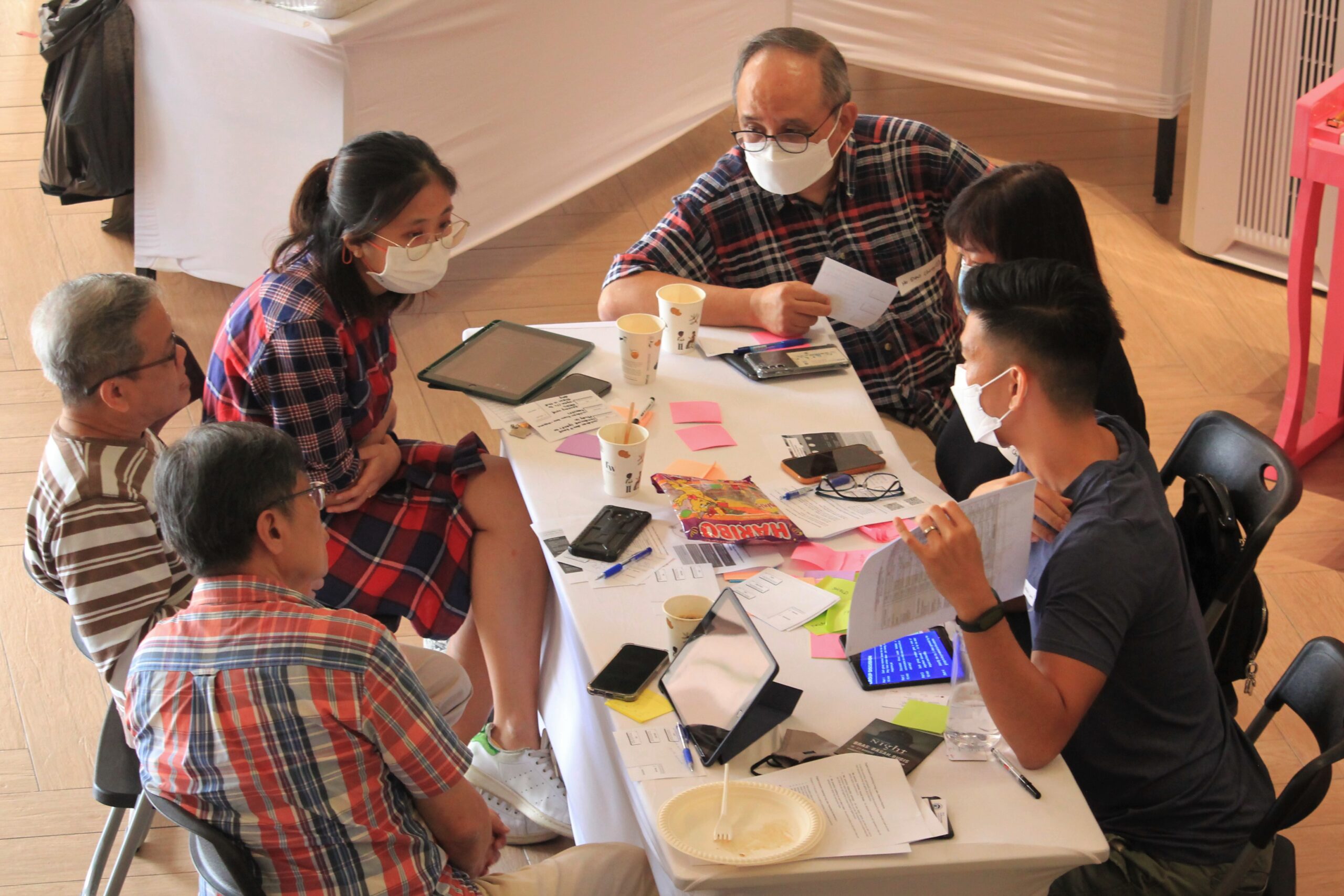
Following that, they generated preliminary ideas to address these key issues. And finally, they formed teams to work on these ideas to improve digital inclusion in Singapore for the 51,100 families living in public rental flats.
After some attrition and consolidation, 3 teams were formed and on Saturday, 3rd December 2022, we organized the fourth workshop for them to pitch their ideas to a room of 26 funders, resource persons and potential volunteers. Here’s what happened:
Idea 1: Train ‘Digi-Sitters’ to help provide basic IT support and supervise Internet use
The pitching began with Team Digi-Sitters, a team comprising two social sector professionals – Bernice from ReadAble and Grace from Filos Community Services and Whee Peng, an academic working in the Singapore University of Social Sciences.
Bernice and Grace observed from their work that parents of children from public rental flat communities may not have the necessary technical knowledge needed to supervise their child’s Internet usage or support their home-based learning.
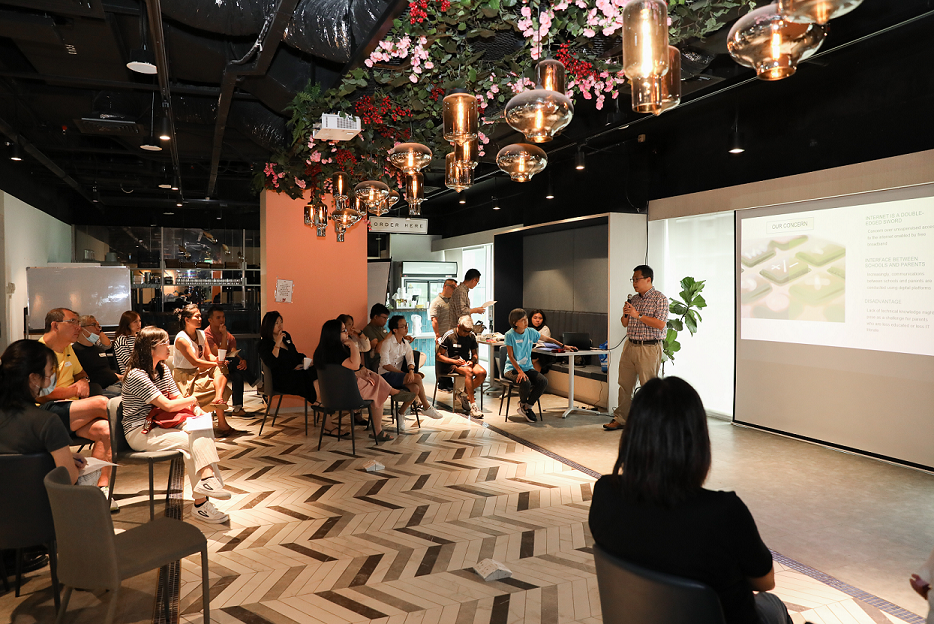
With more than 54% of parents in Singapore reporting that their children have encountered inappropriate content online and home based learning set to be a regular part of schooling post COVID-19, this issue is fast becoming an urgent one that we need to address. They wondered: “how might we equip parents and caregivers to better help their children navigate the digital world?”
Currently, there are several resources available to support parents with keeping their children safe online, most notably Help123.sg, a cyber wellness and digital parenting platform which compiles various articles, workshops and resources, put together by TOUCH Community Services and supported by SingTel.
But such platforms might not be easily accessible for parents / caregivers of children in low-income communities whose first language is not English.
The team’s idea is to build on content like these to develop a series of workshops to train parents / caregivers of primary school aged children living in rental flats to provide basic IT support and supervise usage of the Internet.
Some topics could include: how to set rules for Internet use, how to regulate Broadband access or how to use social media mindfully. These parents will also be recruited to volunteer their time at existing youth drop-in centres as “digi-sitters” to help youths navigate the Internet safely.
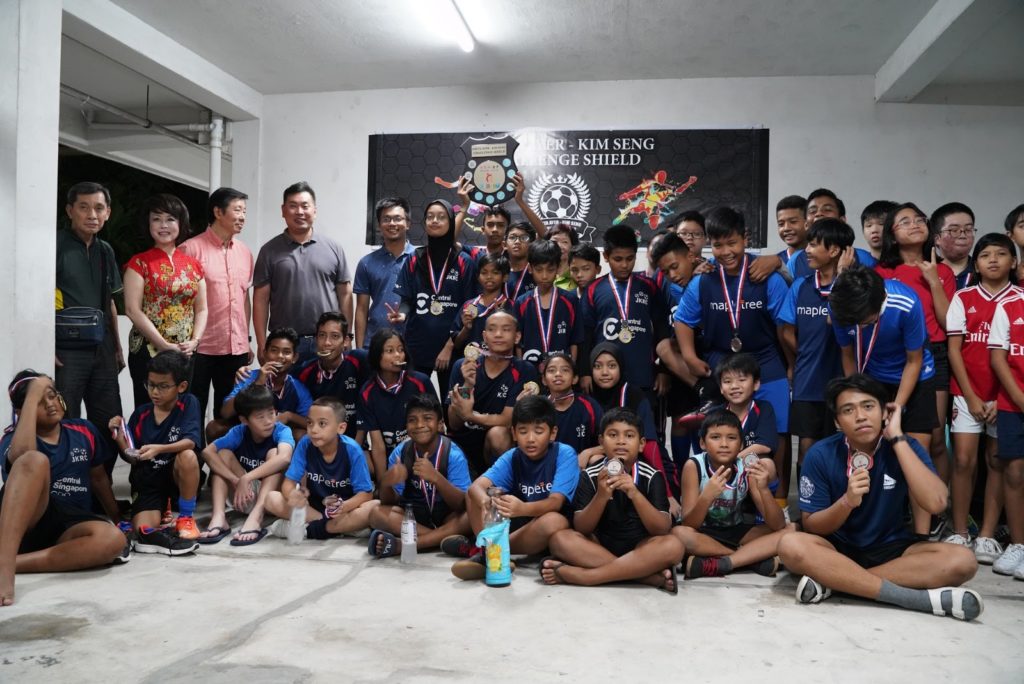
Over the next 6 months, the team will develop a curriculum to train 10 digi-sitters (2 batches of 5 digi-sitters each) living in the Jalan Kukoh neighbourhood and deploy them to a youth drop-in centre in the area called Catch Plus.
If successful, they hope to document the process so that it can be replicated by other partners in other low-income neighbourhoods across Singapore.
Idea 2: Help parents in public rental flats adopt technology to save time
The next team that went was Team Technology for Families, led by Adrian, co-founder of social enterprise SG Assist, with team members Amos and Zubee, both social work professionals. The team had conducted a mini Focus Group Discussion with 9 mothers living in public rental flats in the Lengkok Bahru area.
Through this discussion, they identified 3 challenges faced by these mothers: (i) lack of sleep due to caregiving responsibilities, household chores and caregiving stress, (ii) cooking cheaper, better, healthier but faster to save time and (iii) improving time management so they can do more for their family.
They found that a day for the mothers starts as early as 5am as they have to prepare breakfast and get their children ready for school. It could end as late as 1am after all household chores are complete and they have put their children to bed.
Some have to juggle both work and caregiving duties, while keeping track of a variety of things – from applications for financial assistance to doctor appointments, etc. They are also struggling to keep up with what their children are learning in school, despite their best intentions in wanting to help with their homework.
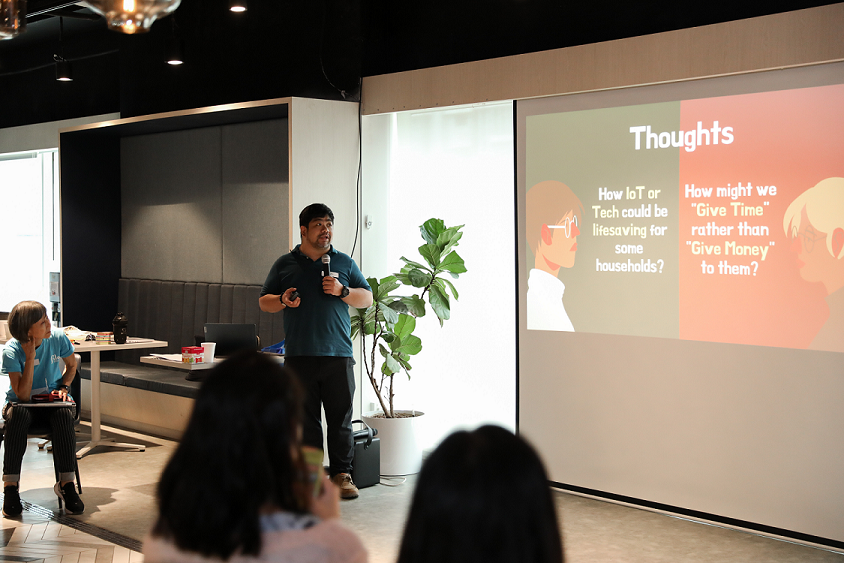
Looking at the 3 challenges, the team wondered: “Beyond giving money through financial assistance, could technology be deployed to help give these mothers time?” Technology could be as simple as deploying a cleaning robot to assist them with household chores or mobile applications like SG Assist which they can use to help with caregiving for their elderly parents.
Interestingly, the team found that the mothers do have experience with adopting technology, with the most common form of technology adoption being Netflix. They also made other useful observations, summarized in the screenshot below:
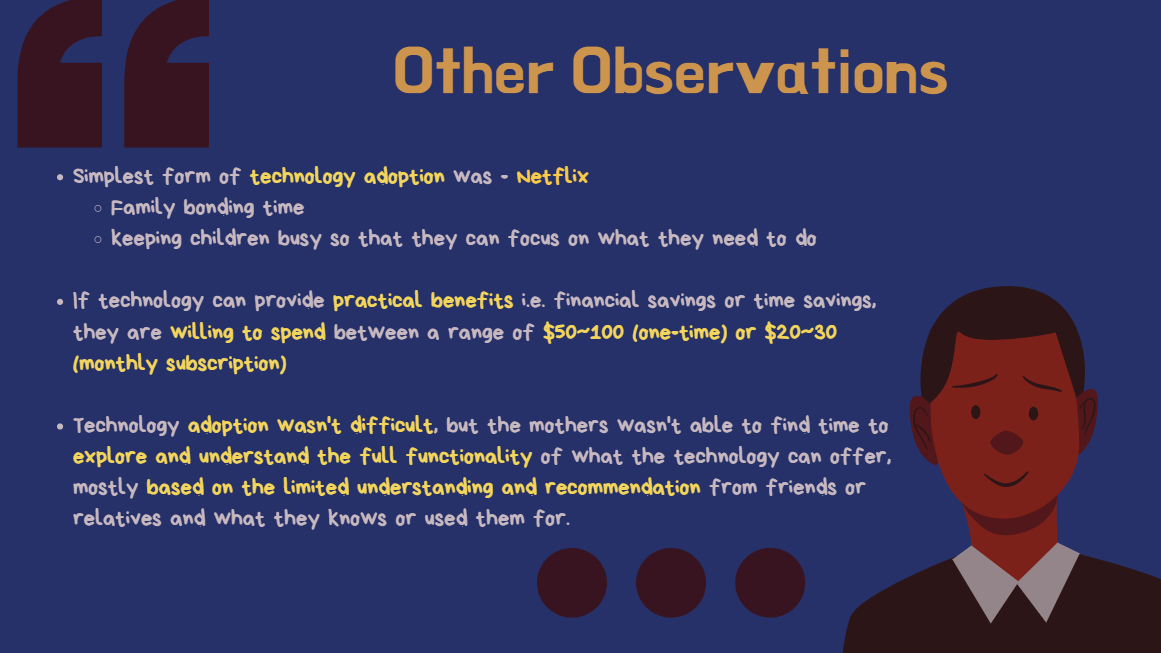
Over the next 6 months, the team will engage this group of 9 mothers in deeper conversations to identify some specific tech solutions they can try, get some funding for them to try it out and measure if it actually helps them with saving time. If successful, they hope to document the lessons learnt so that it can be replicated to other neighbourhoods in Singapore.
Idea 3: Teach children in public rental flats digital skills through play-based workshops
The final team that presented was Team Digital Playground, led by Victor, co-founder of local social enterprise Hatch, with team members Rong Xin, founder of a student care centre, Etienne, a student and Nadine, a Chief Product Officer at a technology company.
Through their various work and volunteering experiences, each of them have observed the challenges faced by children from low-income families in accessing skills that can help them participate in the digital economy. Therefore, the team’s idea is to design a series of play-based workshops to help these children to learn a range of digital problem solving skills.
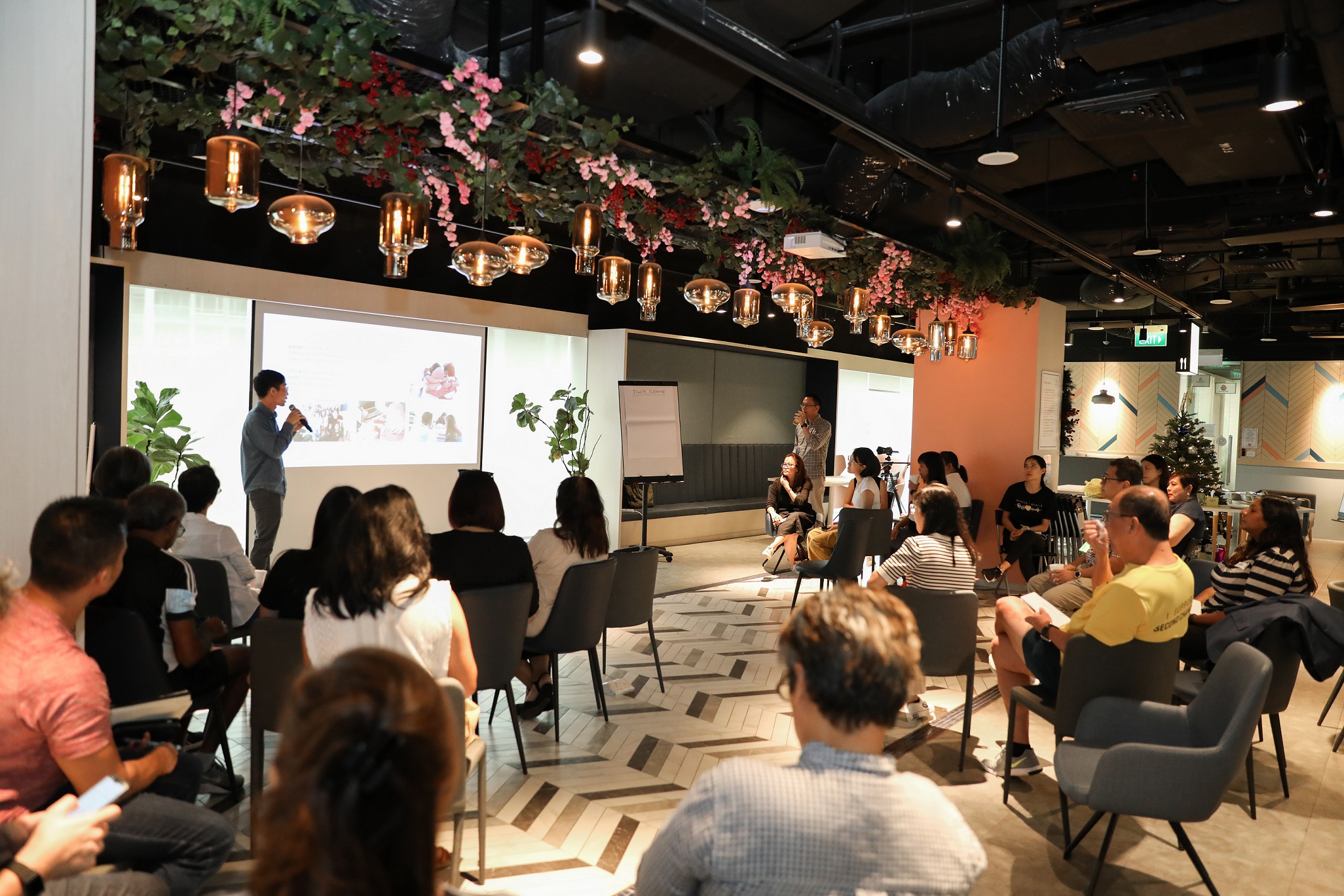
Such workshops are already available for students from higher socio-economic statuses, typically run as enrichment programs during the weekends or over the holidays. The team hopes to design a similar program tailored to the unique learning circumstances of children from low-income families.
Breakout groups for more in-depth feedback
After the pitches, we broke out into three groups (one per team), to enable audience members to give more in-depth feedback to each of the groups. The conversations were really rich.
For Team 1, there was a rich discussion around how parents might be incentivized to become Digi-Sitters and how youths at the drop-in centres might respond to having their Internet use supervised.
For Team 2, participants discussed the challenges faced by mothers in low income communities in more detail and specific technologies that could be deployed first.
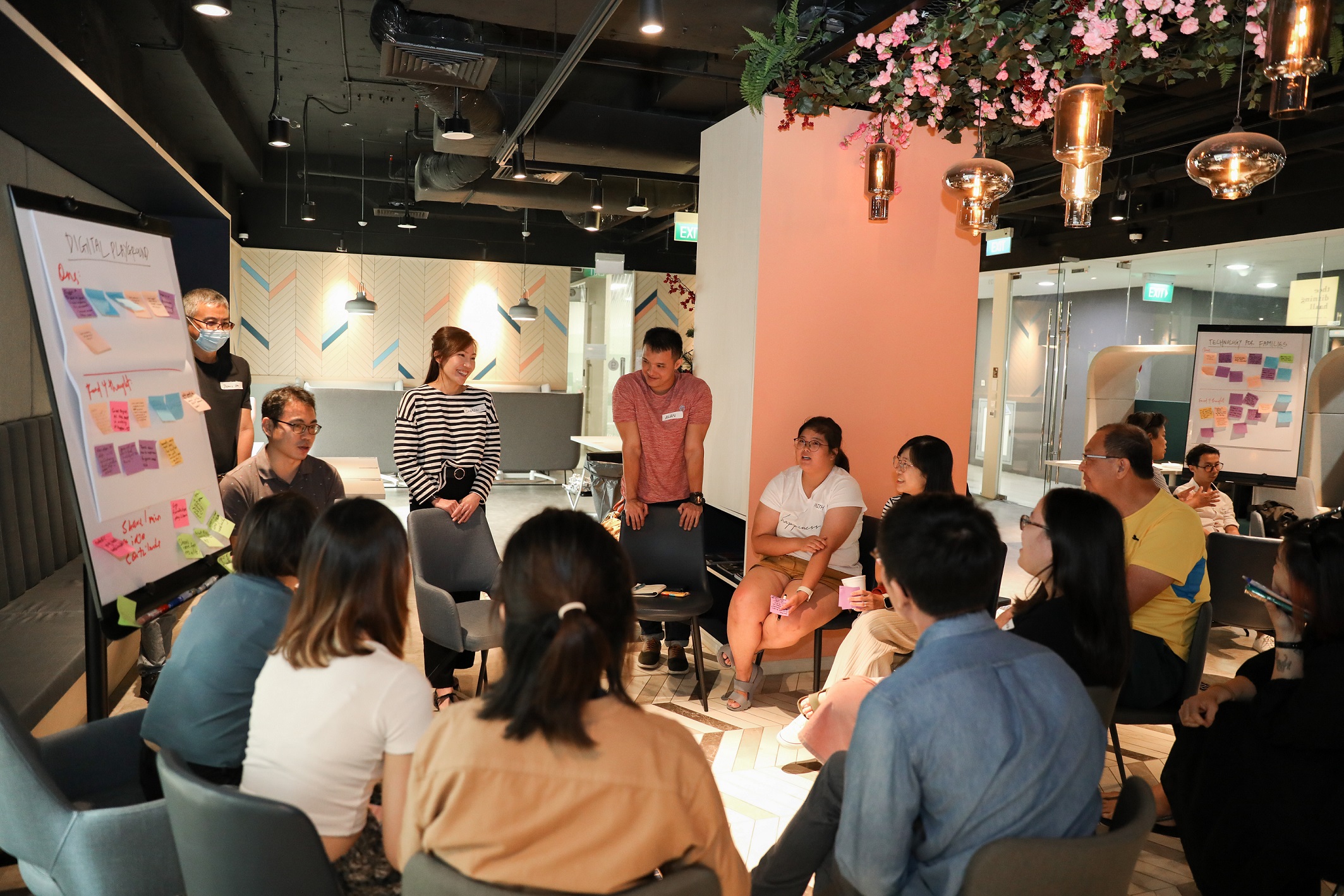
Team 3 had the most number of participants, with audience members who worked in philanthropy giving their two cents on how the idea can be funded, while others working in the academic sectors shared how impact could be measured.
What’s next?
The teams will now begin implementing their idea in a 6-month prototyping phase and we hope to engage the Infocomm Media Development Authority (IMDA) to share these 3 ideas and explore avenues of support.
In the longer term, we hope to harvest the lessons learnt from the prototypes created by these three teams and if successful, rally other key stakeholders in the digital inclusion space to consider working together to scale them to more parts of Singapore.
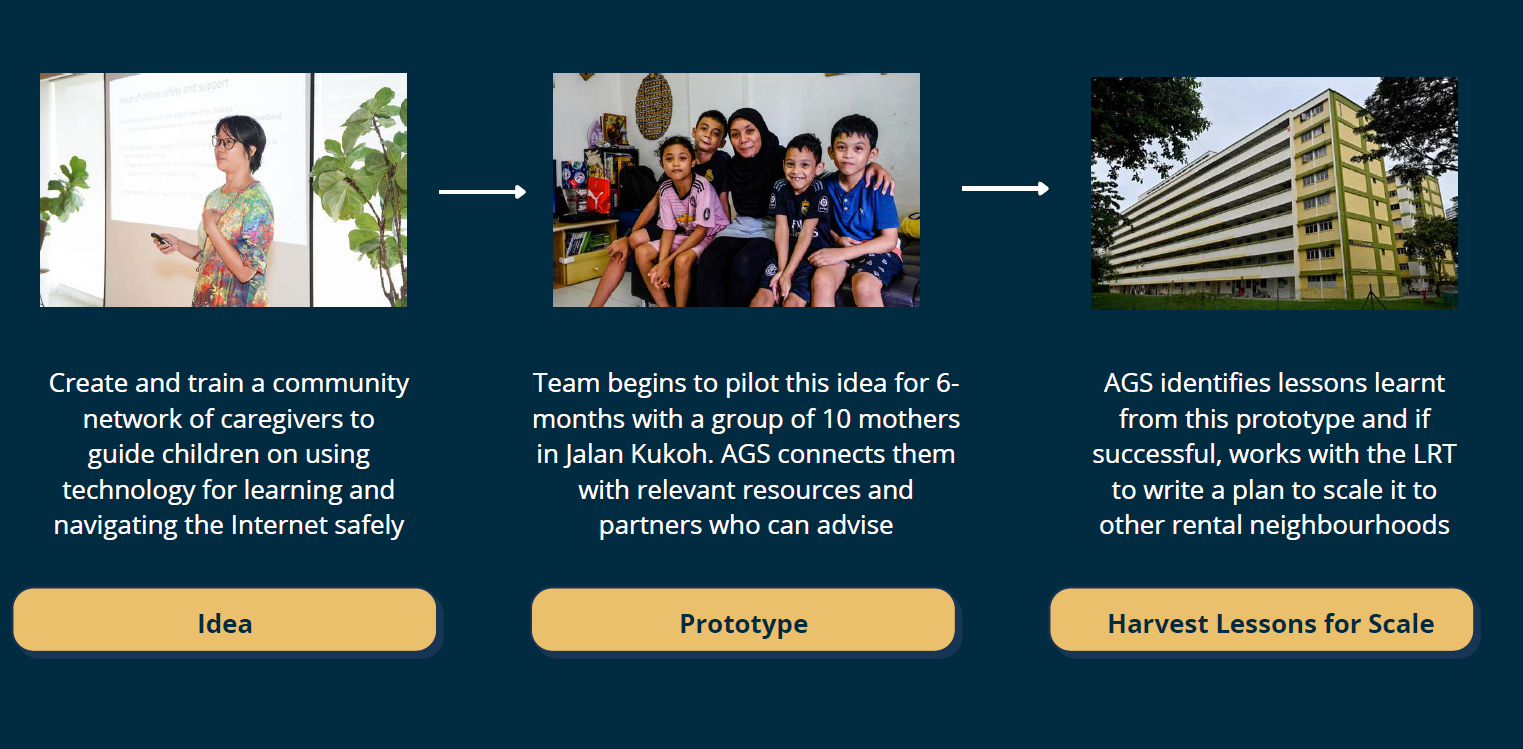
If you are interested to support the teams in any way, whether it’s joining the team as a member, sharing knowledge you have about digital inclusion or connecting them to people who can help with implementing their ideas, please reach out to me at vincentng@agoodspace.org and let’s chat more!
We are grateful to The Majurity Trust’s Groundup@SG grant for supporting us to organize this pitching workshop. Groundup@Sg is a $300K funding partnership initiative between The Majurity Trust and The Community Foundation of Singapore’s Sayang Sayang Fund to support ground-up teams in Singapore in their capacity-building efforts and strengthen their impact as part of the SG Strong Community.
